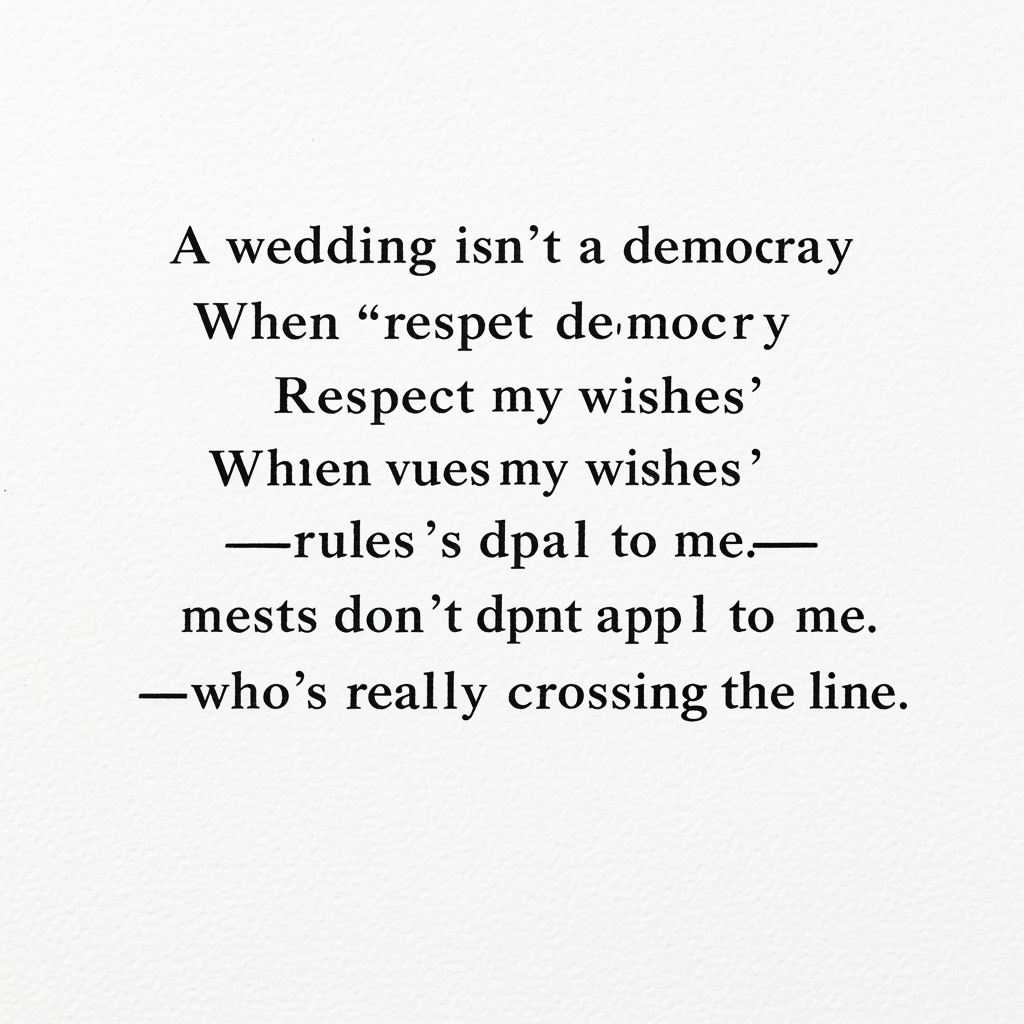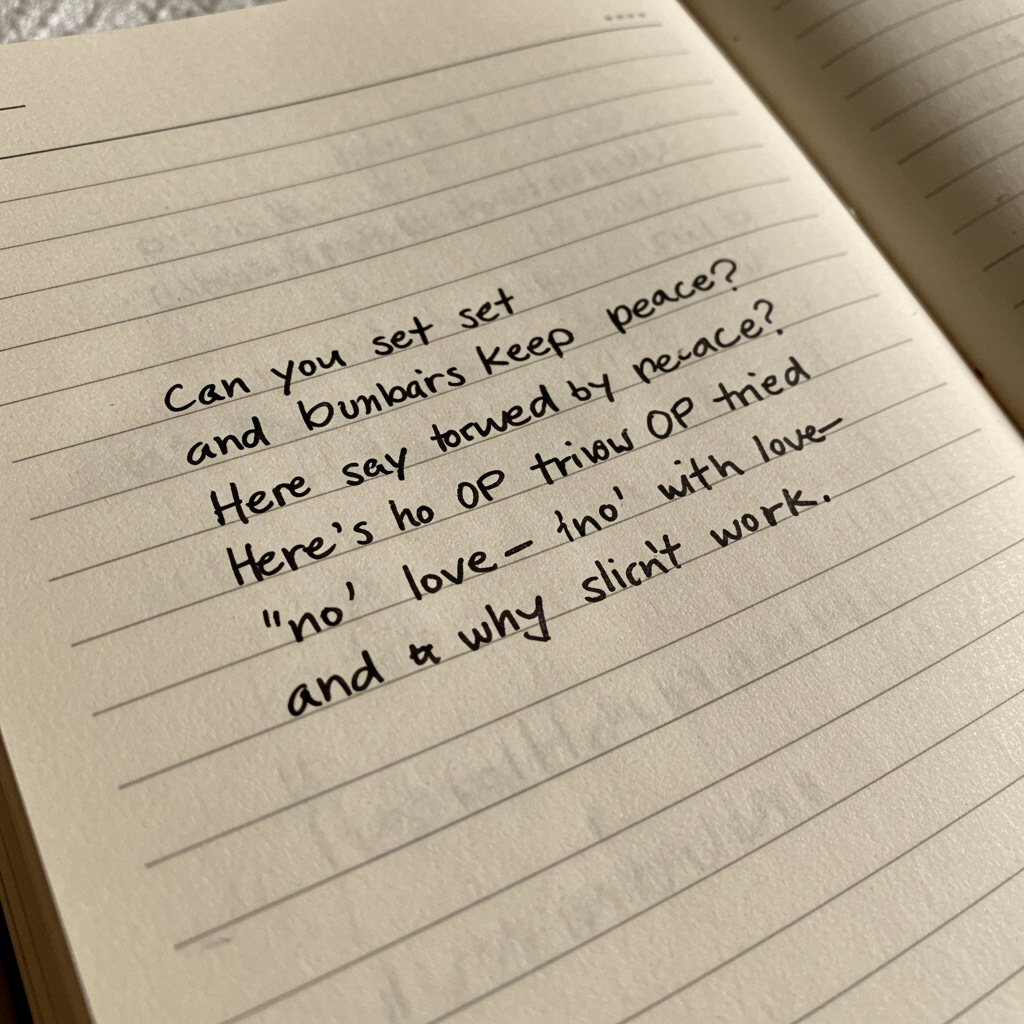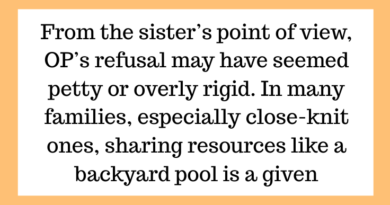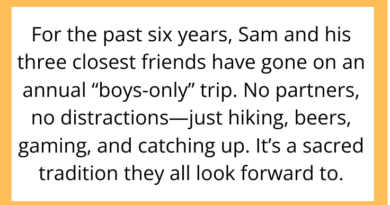Am I the Jerk for Telling My Sister She Can’t Bring Her Kids to My Child-Free Wedding?
Planning a wedding can be one of the most exciting moments in a person’s life—but it can also be one of the most stressful. Add in a strict guest list, strong opinions from family members, and a firm stance on a child-free celebration, and you’ve got the perfect recipe for conflict.
One Reddit user recently took to the r/AITAH community to ask whether they were wrong for enforcing their child-free wedding policy—even when it meant excluding their sister’s children. What followed was a fiery debate about boundaries, respect, and the true meaning of family support.
Setting the Stage: A Wedding With One Rule

The Original Poster (OP) explained that after getting engaged, they and their partner decided on a child-free wedding. It wasn’t an impulsive choice—it was rooted in wanting a peaceful, elegant, and adult-only celebration without crying babies or toddlers running around.
This detail was made clear early on. Invitations were sent with the request stated clearly: “Adults only, please. We appreciate your understanding.”
Everyone seemed to accept it—except OP’s older sister.
Despite knowing the policy, she RSVP’d “yes” for herself, her husband, and their two kids, ages 4 and 6.
When OP gently reminded her that the event was child-free, the sister blew up. She accused OP of being inconsiderate, called the rule selfish, and said, “If my kids aren’t welcome, neither am I.”
Now, OP is questioning whether setting a firm boundary for their big day makes them the jerk—or if their sister is overreacting.
The Bigger Debate: Child-Free Weddings and Family Expectations

Why People Choose Child-Free Weddings
There’s often a misconception that child-free weddings are about exclusion or dislike of children. In reality, many couples make the decision for practical and emotional reasons:
-
Venue and cost limitations
-
Desire for an adults-only ambiance
-
Alcohol-centric receptions
-
Late-night schedules not suitable for young children
In OP’s case, they were clear from the beginning. There was no bait-and-switch, no last-minute surprise. It was about setting a boundary to ensure their vision of the day was honored.
When Family Pushes Back
This scenario isn’t rare. Many people in the AITAH subreddit and beyond have faced similar pushback from relatives who assume that “family” means “rules don’t apply.”
But that mindset can be damaging. It places the comfort of one party over the autonomy and boundaries of another.
In this story, OP’s sister expected special treatment because of their relationship. Yet honoring a boundary isn’t disrespect—it’s clarity.
Drawing the Line: Boundaries vs. Entitlement

Respecting the Host’s Rules
At the core, a wedding is a private event hosted by individuals spending their time, energy, and money. Just like any host can decide who is welcome in their home, a bride and groom have every right to determine the guest list for their wedding.
OP wasn’t targeting their sister or her children. The no-kids rule applied to everyone—cousins, friends, coworkers alike.
Reddit commenters overwhelmingly supported OP, with many pointing out that the sister’s refusal to find a babysitter or compromise showed a lack of support—not the other way around.
Entitlement Isn’t the Same as Inclusion
Entitlement often hides behind emotional language like “you’re excluding my children” or “you’re tearing the family apart.” But setting boundaries doesn’t make someone unkind. It makes them self-aware.
In OP’s case, the sister’s reaction wasn’t about feeling excluded—it was about expecting the rules to bend for her convenience.
Navigating the Fallout: What Happens Next?

Standing Firm Without Burning Bridges
OP’s dilemma isn’t just about the wedding day—it’s about the long-term impact on family dynamics.
Some Redditors advised standing firm while still expressing love and understanding. A sample response might look like:
“We understand it’s hard to find a babysitter, and we love your kids dearly. But this is one day we’ve envisioned for ourselves, and we hope you’ll support us by either attending solo or celebrating with us afterward.”
This approach communicates compassion while maintaining a clear boundary.
When “Support” Has Conditions
It’s worth asking: If attending a sibling’s wedding is truly important, shouldn’t one be willing to make some adjustments?
OP’s sister seemed to condition her support on her own convenience. If being there meant honoring the couple’s wishes, and she couldn’t do that, was she truly supporting them—or just insisting on her own way?
What the AITAH Community Said

Reddit’s judgment was clear: Not the jerk.
Here are some comments that stood out:
“A boundary is a boundary. She doesn’t get to decide which ones she can ignore.”
“It’s one day. If she can’t prioritize your happiness over her inconvenience, that says a lot.”
“Child-free weddings are totally valid. You gave notice. She chose drama.”
The community also emphasized that OP had every right to host the wedding they wanted. While empathy goes a long way, so does respecting someone’s choices.
Final Thoughts: It’s Your Wedding—Own It

Planning a wedding comes with enough stress. You shouldn’t have to defend your decisions on top of everything else—especially when you’ve communicated them clearly from the start.
In OP’s case, they made a respectful, inclusive, and universally applied decision. Their sister’s reaction speaks more to her entitlement than any wrongdoing on OP’s part.
Weddings are about celebrating love—not managing family guilt. And sometimes, being firm isn’t being rude—it’s being real.



